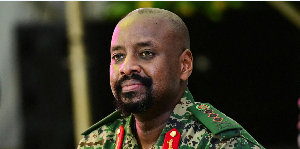On Thursday, Kwadwo Baah-Wiredu will read the national budget statement on how taxpayers' funds, loans and grants will be spent next year and the government's plans to raise money to sponsor its programmes for the year.
Beyond the usual budgetary contents, the special thematic areas for the 2007 budget are a comprehensive public sector salary structure, immediate and long-term solutions to Ghana's energy crisis, and a refreshingly bold diversification of the government's sources of funding its expenditure. Public spending is expected to exceed the ¢45 trillion projected for 2007 in this year's budget. It is expected to hit ¢50 trillion (from ¢42 trillion in 2006), making it one of the biggest inflation-indexed increases ever in the country's history.
Top on the agenda is how Government aims to fill the massive funding gap in the country's development agenda. This year, for example, the various governmental sectors said they needed over ¢80 trillion to implement their ordinary programmes. In the final analyses, the system could raise just about half of that amount, with only about ¢27 trillion of that from total revenue (taxes and other domestic funds), and the rest from bilateral and multilateral loans and grants.
But, in an exclusive interview with The Statesman yesterday the Minister of Finance and Economic Planning disclosed a significant historic dimension to Government's funds mobilisation exercise beyond the traditional sources such as the IMF, World Bank, and bilateral arrangements.
He says that a huge chunk of what is required to undertake government projects, particularly social infrastructure, can be expected to be sourced from the international money market, exploiting Ghana's attractive sovereign credit rating of B+.
This, some analysts believe, can easily add about $1 billion a year to the development kitty, depending on how boldly President John Agyekum Kufuor and his finance minister are prepared to act.
But the signs are good. In mid-October, the African Development Bank, in collaboration with Standard Chartered Bank, made the first ever Eurobond issue with the cedi. They expected to raise $20-$30 million in the two-day issue. They ended up selling $45million of the two-year fixed rate Eurobond, after the issue was encouragingly oversubscribed.
"We had to cut it off when the book size reached $45 million," said Ade Adebajo, director, debt capital markets-Africa at Standard Chartered. "It is the capital market that is best equipped to provide the long-term capital that is needed for our infrastructure needs as well as the needs of the private sector," Deputy Finance Minister Anthony Osei Akoto remarks. On the local front, Government of Ghana Bonds were this year traded for the first time on the Ghana Stock Exchange, another commitment made in the 2006 budget to deepen the local capital market included a commitment to use the Accra bourse as the preferred mechanism for the divestiture of state enterprises; and supporting the Securities and Exchange Commission to develop and strengthen regulation of the over-the-counter market. The process is ongoing to list the State Insurance Company and Ghana Oil Company on the bourse.
Also speaking to The Statesman yesterday, Osei Akoto says the budget will make provisions for dealing with the country's energy crisis. Newmont, AngloGold Ashanti and Goldfields are among the leading companies projecting significant reductions in profits this year due to the current load-shedding in electricity. But, checks made by The Statesman indicate that small and medium size enterprises are taking even greater financial hits, especially in the manufacturing sector.
The Deputy Minister says "We need to deal with the short-term problems to assure improvements in power supply." He also hinted that Government's recent gesture to absorb the latest tariff increases will not be sustained. "We cannot continue to absorb tariff adjustments."
His boss added that for the medium to long term, the Bui Dam project will be on stream. Also, the budget will signal a bold attempt by Government in the search and application of alternative sources of energy, Mr. Baah-Wiredu says. He further disclosed that in line with calls, including the latest from the Okyenhene, for a greater level of decentralised empowerment, Government is to undertake a radical decentralisation of public departments, which is expected to streamline financial administration and enhance overall efficiency in governance.
In line with this, the Local Government Council is organising this week a three-day strategic communication workshop for Chief Directors and Directors of Ministries, Departments and Agencies to discuss their integration into the Metropolitan, Municipal and District Assemblies.
The MDAs are to be classified under 11 decentralised departments. This should substitute the current system of deconcentration into one of devolution, with functions previously performed by branches, divisions or units of the departments to be transferred to the assemblies, the capacity of which are to be enhanced.
Government is expected to learn lessons from the implementation of the Public Procurement Act, 2004, which has been fraught with problems. Though welcomed as an excellent law against corruption, it has led to untold delays in the award of public contracts. Some have described the law as "cumbersome", but the majority view is on the lack of capacity to see it work smoothly.
Ironically, the decision to read the budget in November of the preceding budget year is supposed to help the MDAs undertake their annual programmes within the budget year. But, delays in the new procurement process are having their toll.
Business News of Tuesday, 14 November 2006
Source: The Statesman












